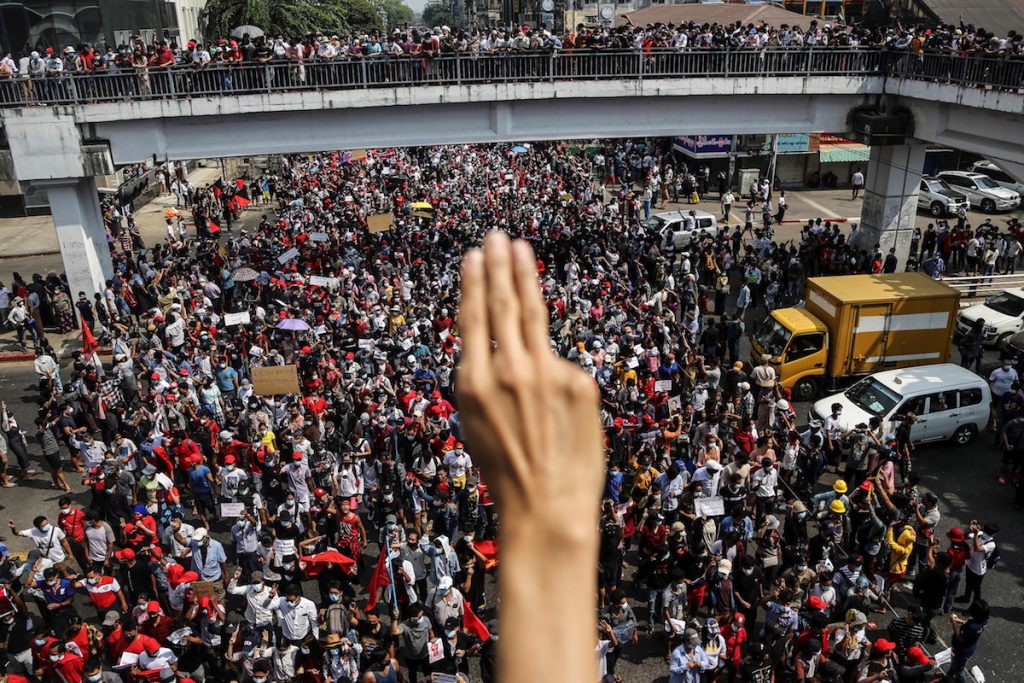Various church groups have expressed support for non-violent mass movements calling for the restoration of democracy in Myanmar following the Feb. 1 military coup.
In the Philippines, priests, religious, and students from Myanmar showed solidarity with the people back home by holding a prayer gathering in Quezon City on Feb. 7.
“We would like you to know that even though we could not be physically present we offer our supplications to God for Myanmar,” said one priest who asked not to be named.
The Catholic Bishops’ Conference of Myanmar has earlier instructed all dioceses and religious in the country to observe a “day of prayer and fasting.”
The bishops told priests and the faithful to offer intentions for peace in the country in the celebrations of the Holy Eucharist.
The bishops also encouraged priests to use the statement of Cardinal Charles Maung Bo of Yangon, president of the bishops’ conference, as basis for their homily.
On Feb. 3, Cardinal Bo called for dialogue, saying that peace is the only way forward in the country.
In a separate statement, the Myanmar Baptist Convention said it “always stands firmly on the promotion of love, justice, peace, and freedom” in accordance with Christian social teachings.
The group expressed “disappointment” over the military coup and the arrest of civilian leaders as the country is “suffering greatly” because of the pandemic.

The convention, which was officially founded in 1865 as the Burma Baptist Missionary Convention, claimed to have 5,319 churches and more than 1.7 million members.
The Protestant group said it “rejects any oppressive ruling system” and called for the “immediate and unconditional release” of arrested and detained civil leaders.
“[We] hope for the emergence of a Republic of the Union of Myanmar, based on the Federal Democratic system, which values and promotes peace, justice, national reconciliation, non-violence, and respect for human rights and dignity,” read the statement.
The Yangon-based group is affiliated with the Baptist World Alliance and a member of the World Council of Churches.
The Myanmar Institute of Theology, meanwhile, said it will actively support and participate in the “civil disobedience movement” and other non-violent movements in the country to put pressure on the military to stand down.
“We firmly stand with the peoples of Myanmar who have freely expressed their will and sincere desires for the prevalence of justice and peace, which is the way of Jesus Christ,” read the statement.
The institute condemned the “unjust, forceful, oppressive, authoritarian activities” of the military regime, which it said lead “to the control of people’s power against the will of the majority of people in Myanmar.
Pope Francis on Feb. 7, called on political leaders in Myanmar to “show sincere willingness to serve the common good, promoting social justice and national stability.”